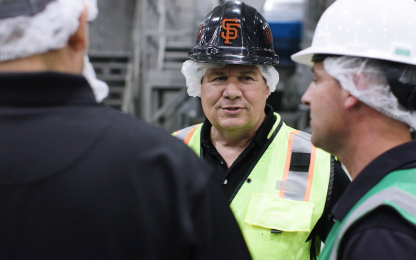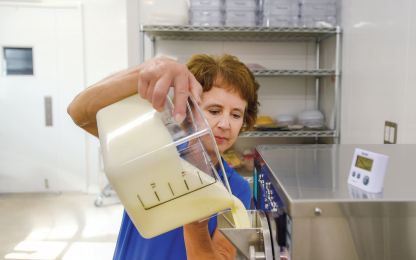Three Generations of Farming
As a young child, Stevens Culverson set his eyes on carrying on his family legacy. But by the time he planned to return to the farm, his grandfather had sold the equipment and rented the land. Since 2010, Stevens has acquired ownership over his family farm where he grows 500 acres of peanuts, 300 acres of sweet corn and the remainder in cotton.
“As a young child, I knew that I wanted to farm,” Stevens said. “Watching my grandfather, farming was something that I was very interested in and wanted to continue with.”
While Stevens has enjoyed following in the footsteps of hardworking farmers before him, he is no stranger to the difficulties that come with having a farming operation.
“Farming is very hard,” he said. “My situation was a little different being that my granddaddy had retired already, so I basically started with virtually nothing.”
Farm Credit: A Trusted Lender
Starting his operation from scratch, Stevens needed a reliable lender who understood his vision and would help him grow his operation. He found that partner in Southwest Georgia Farm Credit. They have helped Stevens finance the necessary equipment, and they have built a great relationship over the years.
“Southwest Georgia Farm Credit, they definitely go above and beyond. I feel like they see the importance of young, beginning farmers,” he said.
Farm Credit has also helped Stevens finance harvesting equipment, which helped him diversify his crop rotation.
“Farm Credit offers a lot of different services and people to help young farmers like Stevens,” Matthew Burch, a relationship manager at Southwest Georgia Farm Credit, said. “We offer guidance, and we understand his struggles.”
Through a working partnership with USDA’s FSAs (Farm Service Agency) Guaranteed Farm Loan Programs, Farm Credit offers young and beginning farmers long-term, fixed rates on their farm loans.
Building Sustainable Farming Practices
Stevens prides himself on growing quality peanuts that consumers can enjoy. The peanuts are irrigated, which cuts down on diseases and ensures they do not endure any stress.
On a yearly average, he produces 1,100-1,400 tons of peanuts, which has become his most demanding commodity.
“They’re good quality peanuts,” he said. “We pride ourselves on that for sure.”


